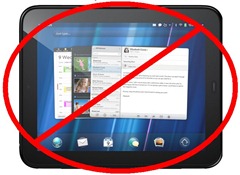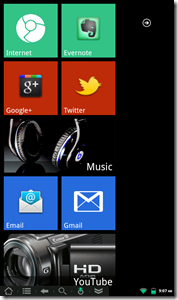 HP decided to discontinue the webOS, which means the TouchPad is no more. I can’t say that I’m totally surprised that it failed, but I am shocked at the speed at which the company pulled the plug. I thought this might happen. I even went as far as to say “the webOS died in 2010†in a post back on December 31, 2010.
HP decided to discontinue the webOS, which means the TouchPad is no more. I can’t say that I’m totally surprised that it failed, but I am shocked at the speed at which the company pulled the plug. I thought this might happen. I even went as far as to say “the webOS died in 2010†in a post back on December 31, 2010.
I have no idea why HP killed the webOS, but I’m sure we’ll find out more in the weeks to come. The operating system itself was awesome. I personally think it had the best user experience of all the current tablet platforms. I was looking forward to it’s maturation as a mobile computing ecosystem. With that said I think HP failed to offer the smartphone variety necessary to make the HP TouchPad meaningful.
I considered buying a TouchPad, but ultimately decided against it. Like many others I have a host of tablets to chose from these days. Why did I baulk at the TouchPad? Basically it boils down to cost, lack of smartphone choice and the feeling that the TouchPad still had some growing pains to go through. These are the same reasons that lead me to hold off on purchasing many of the early Android tablets.
Good-bye TouchPad. Your death was premature to say the least. Shame on you HP for destroying such a beautiful tablet operating system.

